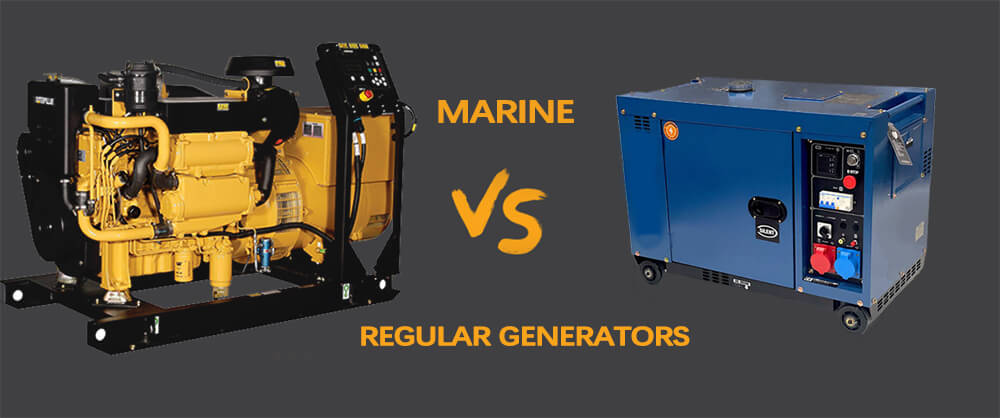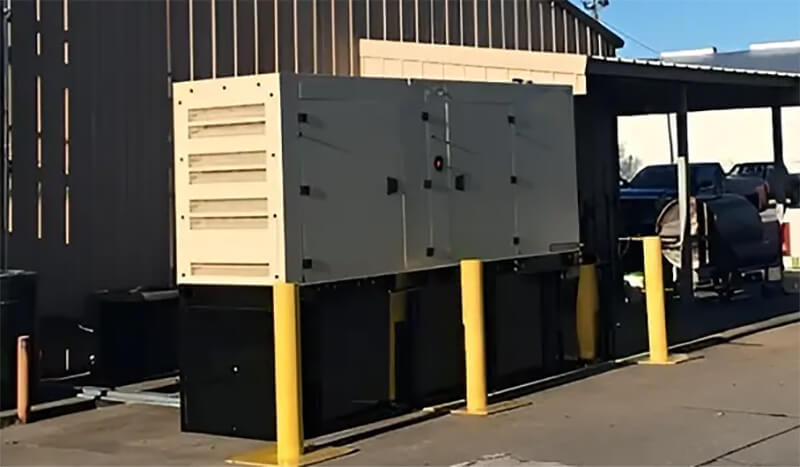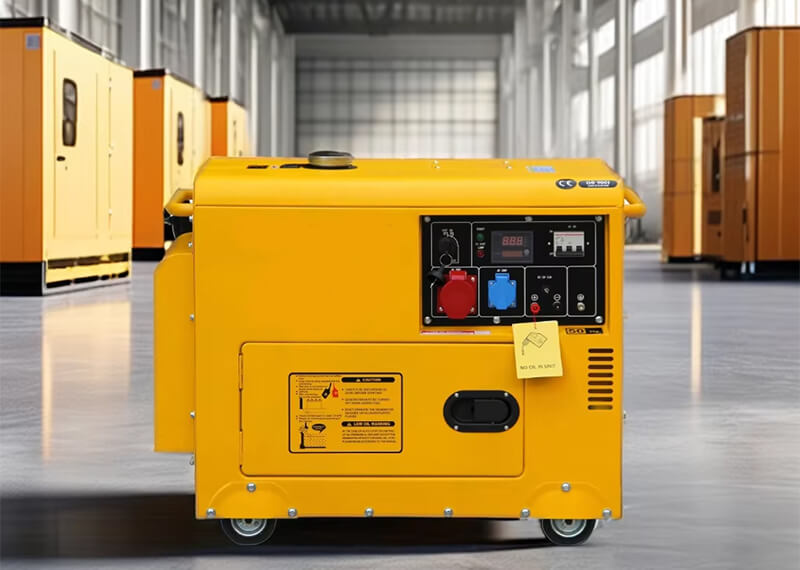marine vs regular generators
- BY BISON
Table of Contents
A generator is a device that transforms mechanical energy into electrical energy, offering crucial power when the main power grid is inaccessible or down, to maintain power during outages.
However, not all generators are designed for the same environments. Marine generators are designed specifically for marine vessels and are very different from regular generators. They are engineered to withstand harsh marine conditions such as saltwater corrosion, constant motion, and space constraints.
This article explains the differences between marine and regular generators, their distinct advantages, and important considerations for choosing the right one for your needs. Keep reading to learn how to select the best generator for powering your adventures on land or at sea.

Purpose and applications
Marine generators
Designed for marine environments, enduring tough conditions like saltwater and moisture. They power essential systems including navigation, communications, lighting and safety equipment, crucial for operating vessels. Provide a steady and dependable power supply to essential systems on yachts, ships and other vessels.
Regular generators
Primarily found in homes, businesses, and factories, these are supply backup power in outages, ensuring that refrigerators, HVAC systems, and lights keep running. Flexible to power tools and equipment at construction sites and provide additional power at events and remote locations.
Design and construction
Marine generators
Constructed from tough, corrosion-resistant materials like stainless steel, withstand in salt heavy marine settings. Offered in multiple sizes and power levels to accommodate various boats and yachts. Generally, they employ a raw water cooling mechanism that utilizes seawater to avoid overheating.
Regular generators
Durable, but typically used in non-corrosive environments. Available in a variety of generator sizes and power outputs to suit different applications. Utilize air cooling or closed-loop liquid cooling systems for temperature management.
Environmental adaptability
Marine generators
Can withstand the harsh conditions of the marine environment, such as seawater exposure and humidity. Waterproof design to prevent water intrusion. And designed with vibration and noise reduction technology to improve onboard comfort.
Regular generators
Designed for stable land environments with basic durability. Standard units often lack advanced waterproofing features. Vibration and noise management are also less complex and geared toward basic environments.
Fuel type and efficiency
Marine generators
Mainly use diesel, as it is available in ports and safer than gasoline in marine environments, coping with variable and often challenging marine conditions.
Regular generators
A range of fuel options are available, including gasoline, propane, and diesel, to suit different usage scenarios and preferences.
Installation and maintenance
Marine generators
A rugged mounting system and shock absorbers are required to handle the movement and vibration on board. Installation often requires expertise due to the complexity of the marine environment.
Regular maintenance is essential to address seawater exposure, including frequent inspections for corrosion and ensuring cooling systems are functioning properly.
Regular generators
Typically installed in a fixed location, such as a standby unit at a home or business. Installation is generally simpler and can be completed by a standard technician.
Varies depending on environment and usage. Regular inspections are required, but the lack of the constant threat of corrosive seawater simplifies some aspects of maintenance.
Safety considerations
Marine generators
Advanced safety features are employed to protect against marine-specific hazards such as water intrusion and corrosion. Enhanced grounding systems and superior insulation are essential to protect against electrical hazards in wet environments.
Regular generators
Equipped with basic safety features suitable for stable non-marine environments, such as circuit breakers and overload protection. Standard grounding and insulation are sufficient for typical land use without contact with water.


Summary
Marine generators typically provide power for critical navigation and communication systems, while regular generators meet domestic or industrial needs.
When choosing between marine and regular generators, evaluate the power needs of your specific application. Consider that marine generators generally cost more due to their special features and rugged construction. Evaluate your budget and balance your power needs. Also note that marine generators may require more frequent maintenance due to the harsh marine environment, while regular generators have a simpler maintenance schedule.
Whether you are sailing or powering your home or business, choosing the right generator is critical for efficiency and safety. Carefully evaluate your needs and invest in a generator that best meets your specific requirements. For expert advice and options suitable for your situation, contact BISON today!
contact us
related product categories
Get in touch to speak with our experts!








